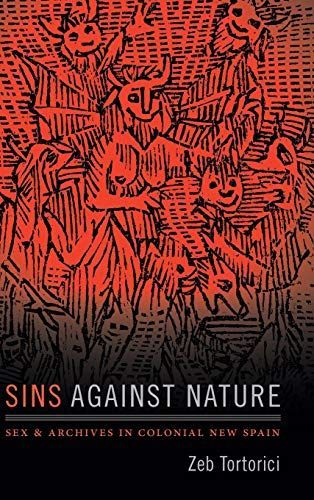
Sins against Nature Sex and Archives in Colonial New Spain
In Sins against Nature Zeb Tortorici explores the prosecution of sex acts in colonial New Spain (present-day Mexico, Guatemala, the US Southwest, and the Philippines) to examine the multiple ways bodies and desires come to be textually recorded and archived. Drawing on the records from over three hundred criminal and Inquisition cases between 1530 and 1821, Tortorici shows how the secular and ecclesiastical courts deployed the term contra natura—against nature—to try those accused of sodomy, bestiality, masturbation, erotic religious visions, priestly solicitation of sex during confession, and other forms of "unnatural" sex. Archival traces of the visceral reactions of witnesses, the accused, colonial authorities, notaries, translators, and others in these records demonstrate the primacy of affect and its importance to the Spanish documentation and regulation of these sins against nature. In foregrounding the logic that dictated which crimes were recorded and how they are mediated through the colonial archive, Tortorici recasts Iberian Atlantic history through the prism of the unnatural while showing how archives destabilize the bodies, desires, and social categories on which the history of sexuality is based.